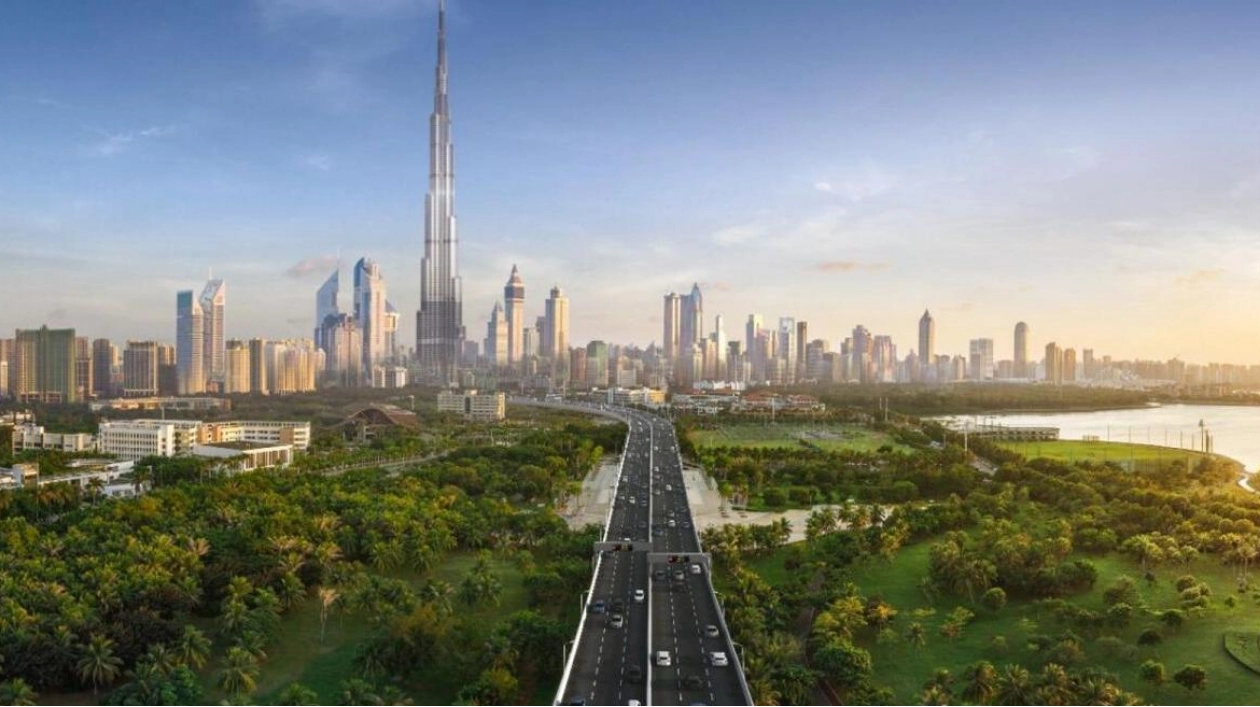Dubai's adoption of flexible work policies is transforming its real estate landscape, driving a shift in demand from central districts to suburban and community-oriented developments. This move is driven by the desire to escape high rentals and traffic congestion. Many residents, including freelancers, are relocating to Dubai's suburbs to capitalize on work-from-home policies and lower rental costs. This shift allows some tenants to save up to Dh100,000 annually on rent, in addition to reducing time spent in traffic.
The population surge in Dubai post-pandemic has exacerbated traffic issues, with some commuters spending hours traveling between home and work. A study by the Roads and Transport Authority (RTA) suggests that remote work and flexible hours could cut morning peak travel times by up to 30%, easing congestion and encouraging a lifestyle away from the city center. With the freedom to work remotely, residents are increasingly attracted to suburban areas like Dubai South and villa communities near Al Qudra, which offer larger living spaces, competitive prices, and essential amenities.
In October 2024, Dubai's real estate market saw transactions worth Dh54.6 billion across 23,791 deals, indicating sustained high demand. This aligns with the growing interest in suburban areas driven by flexible work opportunities. The relocation of Dubai International Airport's operations to Al Maktoum International Airport over the next decade is also influencing this trend, prompting large developers to launch master communities in these areas.
Ayman Youssef, managing director of Coldwell Banker, noted that rising rental pressures are making suburban areas a popular choice. Many communities outside central Dubai offer excellent value and quality living environments. Freelancer Hanae Ouakrime, who moved to Ras Al Khaimah a year ago due to high rentals in Dubai and Sharjah, appreciates the time saved from commuting. She now works from home most days and visits Dubai once or twice a week, finding the commute manageable and the living space larger for herself and her pets.
Youssef added that tenants can save up to 50% on annual rentals by moving from Downtown to suburban areas. For instance, a 3-bedroom townhouse in Maple rents for Dh260,000, while a similar property in The Valley rents for Dh140,000. High rental increases over the past three years have prompted some tenants to seek value in communities outside central Dubai, which offer good amenities and quality lifestyles.
Farooq Syed, CEO of Springfield Properties, highlighted that the RTA study underscores a significant shift in how Dubai residents choose to live. With government support for remote working, the need to commute will diminish, and people will prioritize spacious homes in communities that support a work-from-home lifestyle. This trend will reshape Dubai's property market and set new priorities for buyers.
Today's homebuyers seek properties that support a balanced work-life dynamic, with features like dedicated office spaces, green areas, and recreational facilities becoming top priorities. Areas like Damac Hills 2 have seen a 29% year-on-year increase in average sales prices, reflecting heightened demand for affordable suburban housing.
Developers like Emaar, Damac, and Sobha are responding to these demands by offering adaptable home layouts and community-centered designs. Projects such as Town Square by Nshama, Dubai Hills Estate, Arabian Ranches 3, and The Valley integrate residential, retail, and leisure spaces, providing a self-sufficient environment for residents.
As suburban areas attract more residents, the need for infrastructure to support this growth becomes crucial. The RTA study indicates that remote work policies could reduce traffic on major roads. Investment in infrastructure, including educational facilities, healthcare services, and transportation networks, is essential to sustain the appeal of suburban neighborhoods.
Dubai's population is projected to reach 7.8 million by 2040, highlighting the importance of expanded infrastructure to accommodate a larger resident base. The trend toward remote work is expected to have lasting effects on Dubai's real estate market, likely leading to a more balanced housing landscape that meets diverse lifestyle needs.
Source link: https://www.khaleejtimes.com






